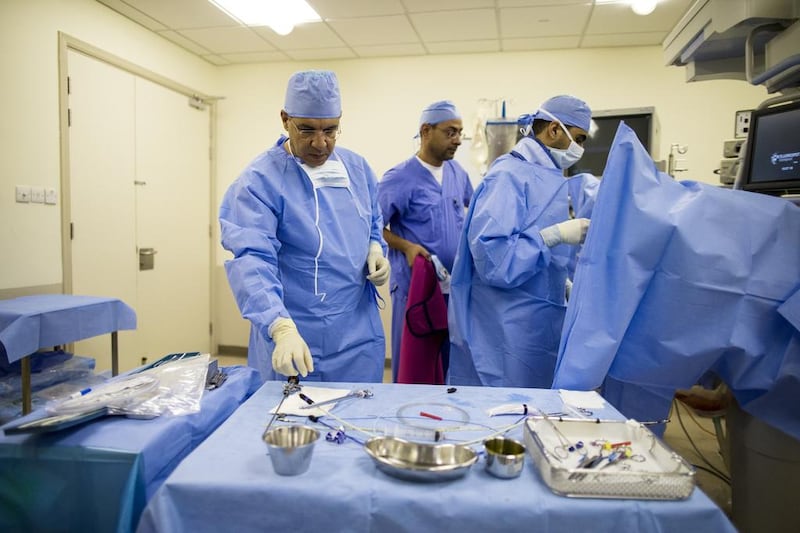Some legal experts suggest that the possibility of sending health professionals to prison for misconduct is contributing to an “overcautious” medical culture that preferences unnecessary tests and overprescription of drugs for fear of later being tried for being insufficiently proactive.
As The National reported yesterday, legal experts said that decriminalising malpractice by doctors will help reduce the cost of medical care in the UAE. Those analysts believe our healthcare system is currently trapped in a cycle of caution, blame and claim. This, in turn, is placing huge financial pressures on the insurance industry.
“Doctors go to jail all over the world, but not for simple malpractice. It has a negative impact if a doctor knows he can go to jail for not testing a patient to indicate a serious illness. You can understand why doctors run tests that may not be necessary, but they are criticised by insurers for doing so,” said Stephen Ballantine, a solicitor in Dubai.
The use of the law in such cases seems counterproductive. Under the current regulations doctors may face immediate suspension while incidents are investigated, which could have serious and long-term consequences for their career, and conviction later.
It always makes sense to pursue doctors who are guilty of gross negligence or other serious errors. However, cases of malpractice could be dealt with by a medical committee rather than by a judge who is unlikely to have medical experience. A medical committee would understand the context and circumstances and could decide if the case warrants a court case.
Prosecuting doctors for making errors is also unlikely to improve patient-safety in the long term. In fact, it could lead to the opposite outcome. Doctors have to make judgement calls all the time, often under intense pressure, based on little more than how the patient appears at the time of consultation. Mistakes can and will, inevitably, be made. Emphasis should be placed on understanding what went wrong rather than on pursuing a conviction that serves neither the medical profession nor the patient.
Another benefit for decriminalising malpractice is that it would help us continue to attract the best doctors to the UAE. Professionals are naturally hesitant to work in any environment if they are placed under constant threat of criminal conviction.





